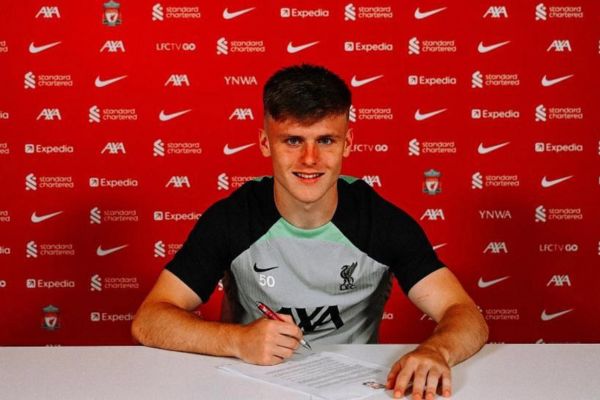Rene Higuita and His Unforgettable Scorpion Kick in Football History
1 year agoRene Higuita, a Colombian football legend, is best known for his extraordinary goalkeeping skills and daring playing style. Among his many remarkable moments on the field, one stands out as genuinely unforgettable: the scorpion kick. This iconic moment has cemented Higuita's legacy as one of the most striking and innovative goalkeepers in the history of football. Let’s dive into this article for more!
Join ULS Footballl to watch live football streaming and read stories about football legends.
The Innovator of The Goalkeeping Style
Today, many coaches expect their goalkeepers to not only protect the goal but also actively participate in the team's style of play. However, Higuita was performing these actions more than three decades ago, setting a precedent for the modern goalkeeper.
Journey to the Goalkeeper Position
Higuita's journey to becoming a goalkeeper was unexpected. Initially, he enjoyed playing as a forward and was even the primary striker in his school team. However, fate intervened when the home team's goalkeeper got injured, and Higuita was chosen as a substitute.
From that moment on, he became closely associated with the goalkeeper position. Despite the change in position, Higuita maintained his habit of dribbling and playing with the ball. He didn't just rush out to steal the ball from the opponent's forward; he also skillfully dribbled past them and engaged in passing plays with his teammates.
In many cases, he even ventured beyond the penalty area to participate in attacks. In an era where goalkeepers primarily received back passes from their teammates and prioritized safety, Higuita was truly a rarity.
He even frequently took part in free-kick situations and scored a total of 44 goals. Former Colombian national team coach Francisco Maturana described him as a "very special element" that brought a different dimension to the team, saying, "With Rene playing as a sweeper-keeper, we had 11 players playing on the field."
Higuita's affinity for the ball was evident in his statement on FIFA's official website in 2018, where he said, "For me, the ball is a toy, a Christmas gift that you don't want to let go. I still remember the feeling of going to the stadium as a child and seeing goalkeepers touch the ball before the opposing forward. They were all exceptional goalkeepers, but they chose to play the ball out wide, and it made me wonder, 'Why don't they play with their feet? If the ball is still in play and our team has a chance to score, why do we give the ball to the opponent with a throw-in?’”
Related post: Roberto Baggio and A Look Back At His Missed Decisive Penalty in the 1994 World Cup
The Consequences and Legacy
However, Higuita's risk-taking style of play sometimes had its consequences. His daring antics on the field cost Colombia dearly in the 1990 World Cup. After helping Colombia reach the round of 16 with stellar performances, Higuita became the culprit in a critical moment.
He rushed out of his penalty area, received a pass from his teammate, and attempted to dribble past Cameroon's veteran striker Roger Milla. His attempt failed, and Milla easily scored the fourth goal of the match, leading Cameroon to the quarterfinals.
Colombia, with Carlos Valderrama as captain, had to exit the tournament due to a mistake that Higuita admitted was a colossal error. Nevertheless, Higuita did not abandon his daring style of play.
One memorable moment was his scorpion kick save in England, which left England coach Terry Venables claiming that he had "never seen anything like it in his life." Higuita had been practicing this scorpion kick style during warm-up.
But nobody else was aware of it but those who were actually on the field, such as Max Rushden of The Guardian. The ball at the right height and not too powerful presented the perfect opportunity for him to make a historic play.
Like Johan Cruyff's spin or Antonin Panenka's penalty kick, Higuita is known as the "Scorpion King" in football history, thanks to that save.
Rene Higuita's Unbelievable Life
If there's anything more extraordinary than what Higuita did on the field, it could only be what he did off the field.
Compared to South American attacking goalkeepers like Rogerio Ceni or Jose Luis Chilavert, Higuita had a uniquely distinct appearance with his long curly hair and trademark mustache. He endured a difficult childhood in Medellin, where his mother passed away early, and he had to work multiple jobs to make ends meet.
As he grew up, he dedicated most of his playing career to teams in the Americas, with only one year in Europe playing for Real Valladolid. When Higuita retired in 2010, he was 44 years old, which is considered an advanced age even for a goalkeeper.
Atletico Nacional and Pablo Escobar
Higuita made a name for himself at Atletico Nacional, playing for two periods from 1986-1992 and 1993-1997. During his time there, he won two Colombian championships and one Copa Libertadores title.
Yet, it's the off-field stories related to Atletico Nacional that are particularly intriguing. The team had a close relationship with a notorious figure in Colombian history: Pablo Escobar. According to FourFourTwo, Escobar rose to power just as Nacional began to achieve success.
As a fervent football enthusiast who later "died with football boots on," Escobar believed that investing in football was a way to satisfy both his personal passion and gain the support of the local people. With millions of dollars at his disposal, Escobar had ambitions not only to make Nacional a force in Colombian football but also to dominate South America.
Escobar didn't directly appoint himself as the club president, but his connection to Nacional was widely known. Former coach Maturana, who led Nacional before joining the national team, admitted, "The revenue from illegal substances poured into football, allowing us to have outstanding foreign and domestic players. Our football level soared. People saw that progress and accused Pablo, but no one could prove it."
Former player Leonel Alvarez declared, "Everyone talks about the person who contributed money to build stadiums, and he is criticized for being a criminal. But players like us feel fortunate to play in these new stadiums."
Fear and Turmoil in Colombian Football
That was the era when Colombia lived in fear, with daytime gang executions, assassinations of politicians, or anyone who dared to stand against Escobar. Football was not exempt, with referees regularly receiving death threats, and the Colombian league even had to cancel the 1989 season after the assassination of referee Alvaro Ortega, known as the "king of the whistle."
As a star of Nacional and the Colombian national team, Higuita couldn't escape Pablo Escobar's attention. In 1991, Escobar, who was in prison at the time, managed to arrange a special friendly match with the presence of both Higuita and the world's best player, Diego Maradona.
It was an unforgettable experience, even for Maradona, as he recounted, "After the match, we partied with the most beautiful women I have ever seen in my life. In a prison! The next morning, Escobar paid and said goodbye."
Higuita's Connection to Escobar and Tragic Consequences
The relationship between Escobar and Higuita went even deeper. In 1993, Higuita was chosen to act as a mediator in the ransom payment of $300,000 from Carlos Molina, a henchman of Escobar, to rescue a kidnapped daughter.
Although he didn't directly participate in the kidnapping plan, Higuita received a prison sentence for accepting a $64,000 reward as an intermediary. When he went to court, Higuita staunchly proclaimed his innocence, saying, "I'm a footballer and didn't know it was a crime", and tried a two-week hunger strike to protest.”
After seven months in prison, Higuita was released and acquitted. But the consequence of being in prison was that he was not allowed to attend the 1994 World Cup despite being at a full age (28). And there have been opinions that if Higuita is present, tragedy is unlikely to happen to another Escobar - a defender named Andres.
For many years, Higuita and Andres Escobar were good teammates in the defense of Atletico Nacional and the Colombia team.
The only goal Escobar scored for the national team was against England in 1988. It was also the match that Higuita inspired to play for the team, according to coach Maturana: "He dribbled past Gary Lineker like a joke. Once Higuita can play naturally, the other players will follow him and start playing our football right."
Higuita's absence on American soil has greatly affected Colombia when there is a lack of a leader on the field. After a 1-3 defeat in the opening match against Romania, Colombia was forced to win against the US host to raise hopes for the next round.
But everything turned tragic when Andres Escobar tried to save the ball from a John Harkes pass inadvertently into the net in the helplessness of goalkeeper Oscar Cordoba. An own goal in the 35th minute put Colombia ahead and lost 1-2 on aggregate. A 2-0 victory in the last match against Switzerland was not enough for the South American team to change the situation.
Just days after Colombia was eliminated from the World Cup, Escobar was brutally murdered in Medellin. The tragedy was that the whole country of Colombia was shocked and up to 120,000 people went to the funeral to see the bad player.
To this day, many people still regret Higuita's absence at the 1994 World Cup. If there was a leader who got along well with Escobar in goal, it is unlikely that such a tragedy would have happened.
The relationship with a gang boss, the involvement in drugs, and the tragedy of life are things that seem only in the movies. But that is the life story of Higuita – one of the most special goalkeepers in the history of the world, both literally and figuratively.
Conclusion
Rene Higuita's unforgettable scorpion kick has etched his name in football history as a true innovator and entertainer. Through the scorpion kick and his incredible life story, Higuita has become an icon, forever etched in the annals of football history. For more shares on football, visit ANZ!
Other news
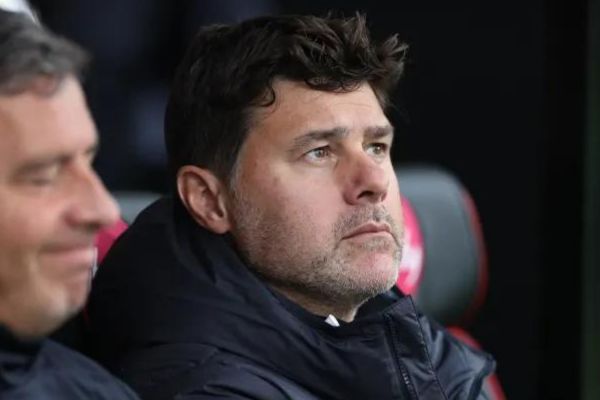
Chelsea's Injury Crisis: A Look at the Missing Players Under Mauricio Pochettino
1 year ago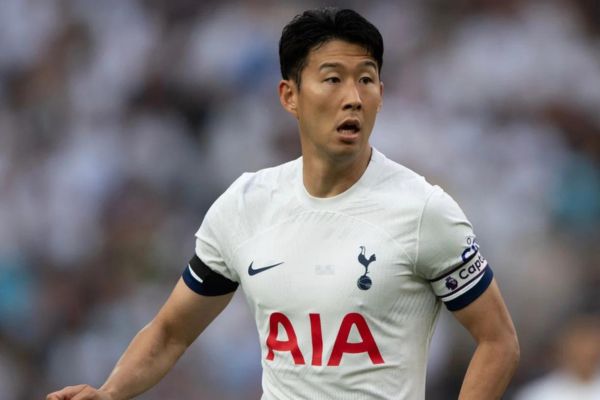
Tottenham's Plan for Son Heung-min: A New Contract on the Horizon
1 year ago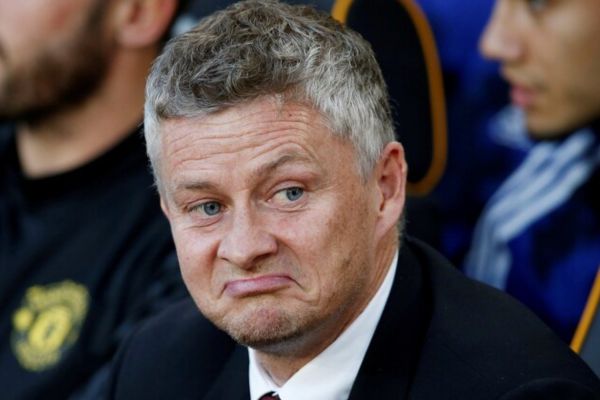
Ole Gunnar Solskjaer Addresses The "Disease of Modern Football"
1 year ago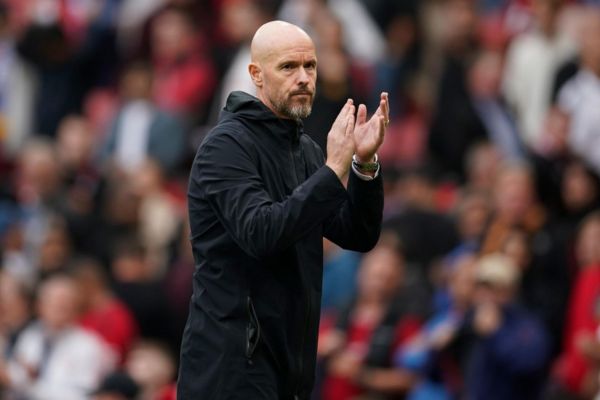
Premier League Crisis Club of the Week 2023/24: Manchester United
1 year ago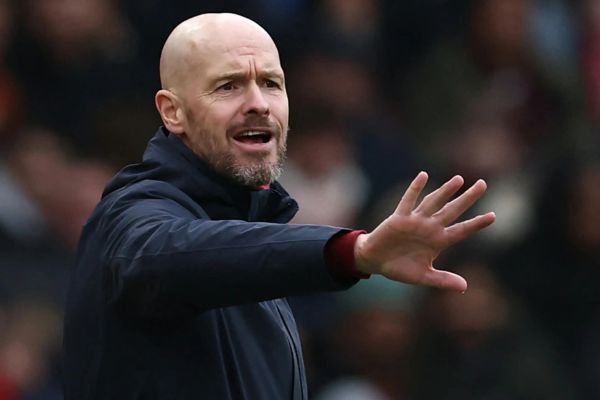
Erik ten Hag's Injury Woes Continue as Man Utd Announce Squad for Bayern Clash
1 year ago